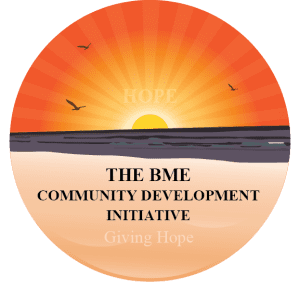Those where the questions the then 12-year-old Axel Rudakubana asked in a trembling voice when he called the Childline. On July 29, 2024, while children were laughing and twirling at a Taylor Swift-themed dance club in Southport, the now 17-year-old, Axel Rudakubana walked into the dance class armed with a knife.
By the time he was stopped, three little girls: Alice, Elsie, Bebe, are dead, and ten others are seriously wounded. This horror shocked the nation, resulting in one of the biggest riots in British history.
As investigators uncovered Axel’s backstory, one thing became painfully clear: this was a tragedy that could have been prevented. Remember, five years earlier, Axel was already crying out for help in the only way he knew how. He was being bullied in school, and something inside him had snapped.
He literally called Childline and asked, “What should I do if I want to kill somebody?”. He admitted he had brought a knife to school repeatedly. This was not a monster speaking. It was a terrified child, overwhelmed by violent thoughts he did not understand, making a plea for help.
What followed was a tragic series of missed interventions. Instead of getting the sustained help he needed, Axel was expelled from school within days of that phone call. He bounced between special schools and referral units. At each turn, his obsession with violence only grew.
Teachers saw the red flags. His disturbing internet searches, his angry outbursts reveal a child in turmoil. In fact, he was referred to the government’s Prevent anti-extremism program three times for his fixation on mass killings. But each time, the case was closed, and he fell through the cracks.
At home, Axel’s loving parents were at a loss. On four separate occasions they begged police for help dealing with their son’s violent behaviour. The officers who responded tried their best in the moment. One night they even found him on a bus with a knife. He told officers he wanted to stab someone.
Officers would confiscate his phone. But still he wasn’t arrested or put into any intensive program. An officer simply drove him home and told his mother to “keep knives out of reach”.
Weeks later, when his father banned him from using his laptop, he exploded in rage and police were called again. The family was desperate; “we just can’t cope with him,” his father told them. Yet the only response was another referral to an overburdened social services team. Axel’s engagement with these services was sporadic and “slipping” by then.
Behind closed doors, unknown to those who brushed off his warning signs, he was methodically planning for carnage. He ordered castor beans and chemistry equipment online to brew poison. He downloaded an al-Qaida knife attack manual.
He obsessively researched past atrocities from the Rwandan genocide that scarred his own family’s history, to school shootings and terror attacks. Time and again, people around him noticed something was very wrong. Teachers, police, mental health workers: “People were clearly worried… but either he was never taken seriously, or no one quite knew what to do with him,” as one report later put it.
And so, nearly five years after that first cry for help, Axel Rudakubana downward spiral reached its devastating conclusion. He walked into that summer dance class full of innocent children and fulfilled the awful promise he had hinted at all along.
Three families lost their little girls forever. Parents who had kissed their daughters goodbye that morning got the news every parent fears the most. Axel was arrested and eventually sentenced to life in prison with 52 years minimum effectively ending his life as well. So many lives shattered. The warning signs had been there, but every chance to stop the tragedy was missed.
